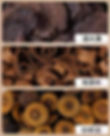Xiao Cheng Qi Tang: A Classic TCM Formula for Mild Constipation Relief
- Health Lab
- Nov 1, 2024
- 4 min read
Updated: May 9, 2025
Xiao Cheng Qi Tang, a gentle yet effective Traditional Chinese Medicine (TCM) formula, is a time-honored remedy for relieving constipation, easing abdominal discomfort, and clearing internal heat.
Originating from Zhang Zhongjing’s Shanghan Lun (Treatise on Febrile Diseases) in the Eastern Han Dynasty, this formula is a milder version of Da Cheng Qi Tang, designed for less severe digestive blockages. Its carefully selected herbs reflect ancient TCM wisdom, offering a natural solution for modern-day gut health challenges.

Origins and Background of Xiao Cheng Qi Tang
Crafted by Zhang Zhongjing, a legendary physician, Xiao Cheng Qi Tang was developed to treat milder cases of “Yangming Fu Shi Syndrome,” where heat and stagnation in the intestines cause constipation and bloating.
In an era of frequent illness and dietary imbalances, this formula provided a balanced approach to restoring digestive flow without the intensity of stronger laxatives. Its focus on the stomach and intestines makes it a versatile remedy for today’s occasional digestive woes.
Ingredients and Their Benefits
Xiao Cheng Qi Tang combines three herbs, each contributing to its gentle laxative and heat-clearing effects:
Rhubarb (Da Huang): Bitter and cold, rhubarb acts as the lead herb, promoting bowel movements, clearing heat, and breaking up stagnation in the intestines.
Bitter Orange (Zhi Shi): Bitter and cooling, bitter orange moves qi, relieves abdominal fullness, and supports digestion, easing bloating.
Magnolia Bark (Hou Po): Warm and aromatic, magnolia bark promotes energy flow, reduces distension, and clears dampness, aiding smooth digestion.
Together, these herbs create a balanced formula that gently purges heat, moves qi, and restores intestinal function without overwhelming the body.
Benefits and Conditions Treated
Xiao Cheng Qi Tang excels at treating mild to moderate constipation and heat-related digestive issues, particularly in cases of “Yangming Fu Shi Syndrome” with less severe symptoms. Its key effects include:
Relieving Constipation: It promotes gentle bowel movements, clearing dry or hard stools.
Clearing Internal Heat: It cools the body, reducing fever, irritability, or thirst tied to intestinal stagnation.
Easing Abdominal Discomfort: It alleviates bloating, fullness, and mild pain in the abdomen.
Supporting Digestion: It restores smooth energy flow in the stomach and intestines.
Common Symptoms
This formula is ideal for:
Mild constipation with dry or hard stools.
Abdominal bloating or fullness.
Mild fever, thirst, or irritability.
Yellow tongue coating with a slippery or rapid pulse.

Practical Applications
Mild Constipation: Xiao Cheng Qi Tang helps those with occasional hard stools or sluggish bowels, promoting regular elimination.
Abdominal Bloating: It relieves fullness or distension caused by stagnant qi and heat in the gut.
Heat-Related Discomfort: It eases mild fever, thirst, or restlessness tied to intestinal blockages.
Clinical Uses
Xiao Cheng Qi Tang is used for:
Mild intestinal obstructions or sluggish bowel movements.
Acute digestive issues like gastroenteritis with constipation.
Early-stage appendicitis or cholecystitis with mild symptoms.
Post-surgical constipation or bloating.
Heat-related conditions like mild fever or irritability with digestive stagnation.
Modern research highlights its benefits: rhubarb has laxative and anti-inflammatory effects, bitter orange supports digestion, and magnolia bark reduces bloating, making this formula a gentle yet effective digestive aid.
Dietary Support
Pairing Xiao Cheng Qi Tang with simple recipes can enhance its digestive and heat-clearing effects:
Radish Soup
Ingredients: 1 radish, sliced.
Method: Boil radish in water until tender, season lightly.
Benefits: Breaks up stagnation and promotes bowel movements.
Mung Bean Porridge
Ingredients: 50g mung beans, 100g rice.
Method: Boil mung beans and rice in water until soft, serve warm.
Benefits: Clears heat and supports detoxification.
Barley Broth
Ingredients: 50g barley (coix seed), 1 carrot, sliced.
Method: Boil barley and carrot in water until tender, season lightly.
Benefits: Clears dampness and aids digestion.
Tangerine Peel Tea
Ingredients: 5g tangerine peel.
Method: Steep in boiling water for 5 minutes, drink warm.
Benefits: Regulates qi and relieves bloating.
Massage Support
Massage can complement Xiao Cheng Qi Tang by stimulating digestion and relieving stagnation:
Tianshu Point: Two inches on either side of the navel. Massage for 5 minutes to ease bloating and promote bowel movements.
Zhongwan Point: Four inches above the navel. Massage for 5 minutes to support stomach function.
Zusanli Point: Three inches below the knee, on the outer shin. Massage for 5 minutes to boost digestive qi.
Qihai Point: Two inches below the navel. Massage for 5 minutes to enhance energy flow.
Precautions
Xiao Cheng Qi Tang is gentle but requires care:
Avoid in Weak Patients: Those with frail constitutions or spleen deficiency should consult a practitioner, as it may deplete energy.
Pregnant Women: Use only under medical guidance due to its laxative effects.
Excessive Heat or Yin Deficiency: Avoid if you have a red tongue, rapid pulse, or dry mouth, as it may worsen symptoms.
Medical Supervision: Always follow a TCM practitioner’s advice for safe use.
Conclusion
Xiao Cheng Qi Tang is a TCM gem, blending rhubarb, bitter orange, and magnolia bark to gently relieve constipation, clear heat, and ease bloating. Perfect for mild digestive issues or occasional sluggishness, this formula restores balance with precision.
Enhance its effects with radish soup or tangerine peel tea, and consult a TCM practitioner for personalized guidance. Let this ancient remedy bring comfort and vitality to your modern life.
